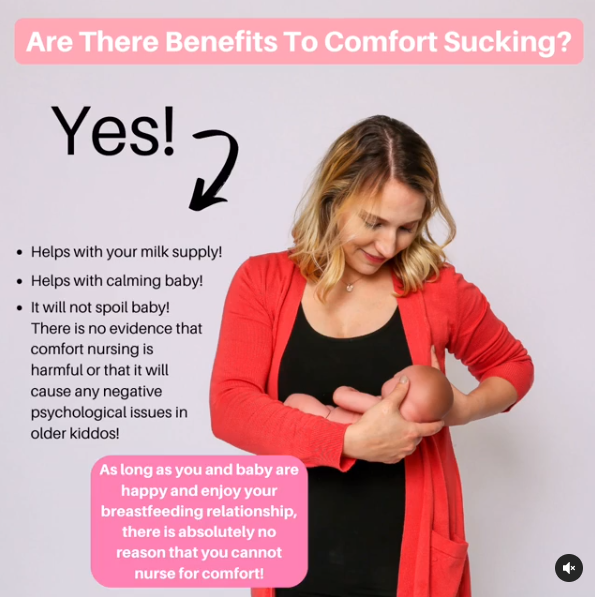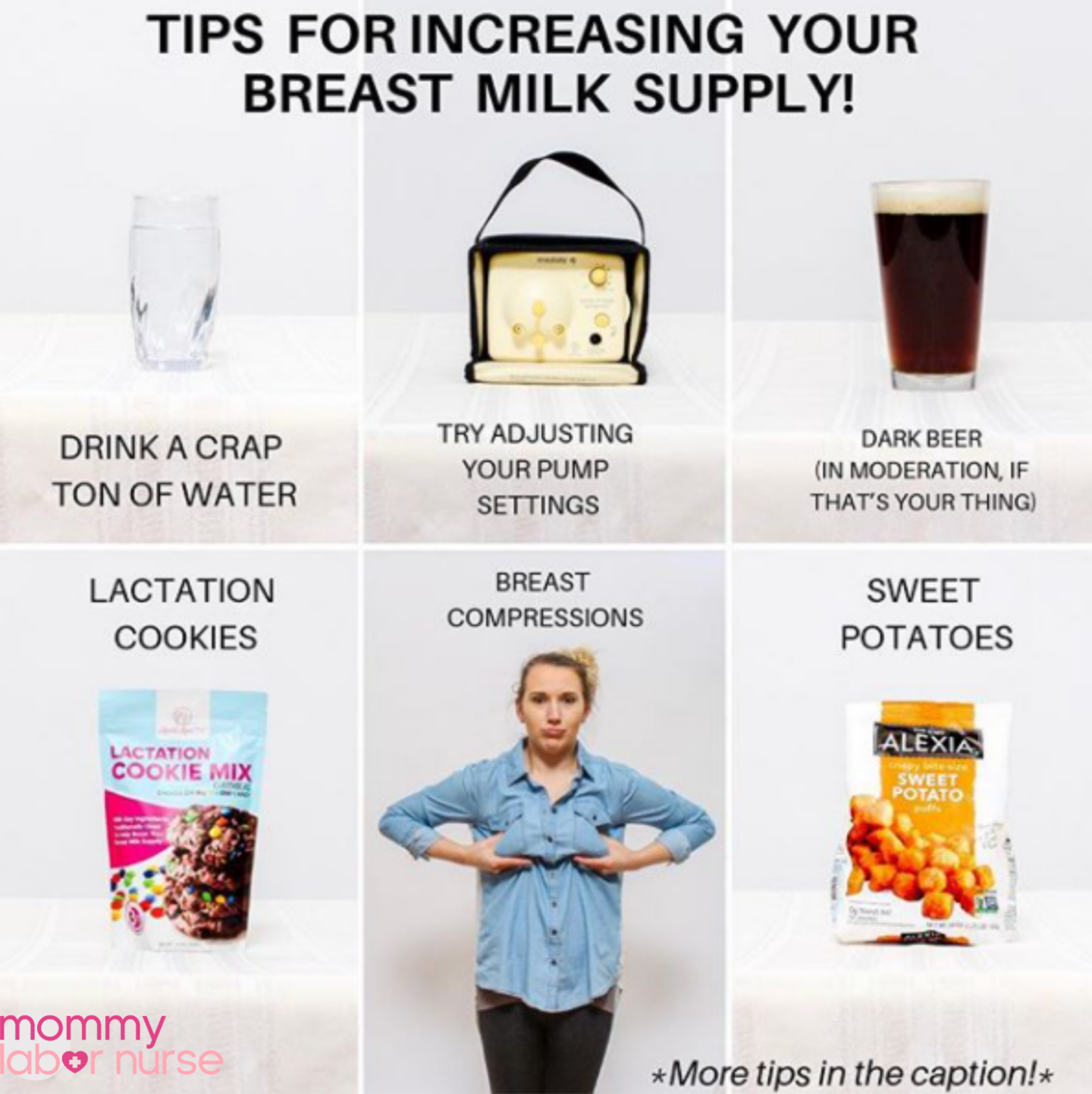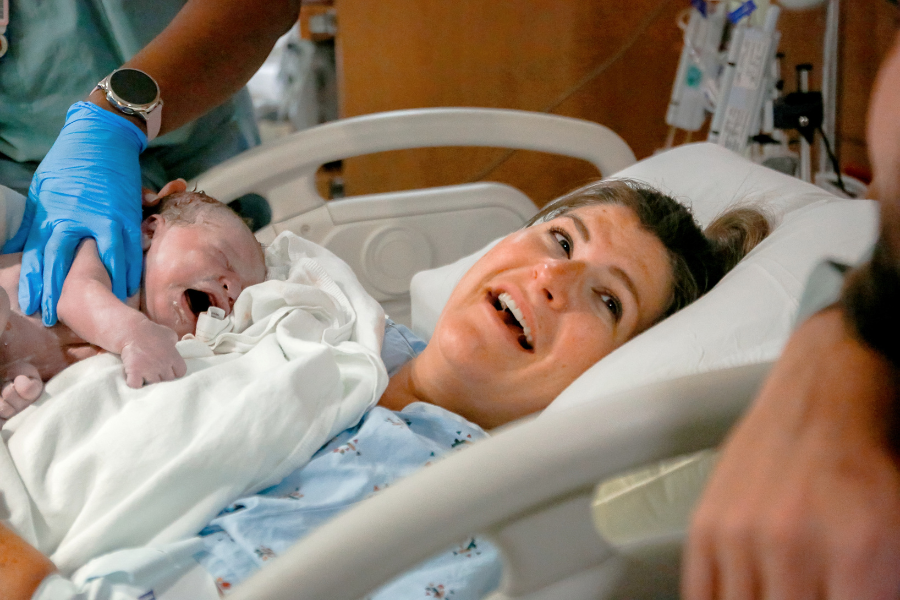I don’t have to tell you, mama, but there are a lot of crazy theories about comfort nursing, or non-nutritive sucking while breastfeeding.
Ultimately, there are studies and there are old wives’ tales, and–of course–advice spilling in from every corner of your social life of whether or not it’s okay to let baby hang out on the boob.
Take a step back, lady. Take a deep breath and snuggle your little one to the boob (because if you’re a nursing mama, you’re probably reading this during a nursing sesh, am I right?)
We’re going to talk all about comfort nursing, the pros and if there are any cons. We’re going to get to the bottom of non nutritive sucking (a term, I for one, don’t really like, hah)
Because as a labor and delivery nurse, and breastfeeding advocate, I want to set the record straight!
- What is comfort nursing?
- Why is there so much opinion out there about comfort nursing?
- How does comfort nursing actually work?
- Is comfort nursing a good thing or a bad thing?
- Why and how comfort nursing is beneficial to baby
- How to tell the difference between nutritive and non nutritive sucking?
- When to worry about frequent breastfeeding
- Comfort nursing and your baby
Follow @mommy.labornurse on Instagram to join our community of over 650k for education, tips, and solidarity on all things pregnancy, birth, and postpartum!
What is comfort nursing?
Chances are that if you’re here you probably know something about comfort sucking. Maybe it’s happening right now!
For those of you who maybe just landed here because it sounded like something you might need to know, there are technically two active stages of nursing:
- The first is when your little bundle nurses vigorously, intending to get a full meal out of it
- The other is when your baby stays latched and kind of just casually sucks for, you guessed it, comfort (crazy, I know!) instead of nutrition
For this reason, the science-folk call it non nutritive sucking or non nutritive nursing. Baby isn’t trying to get full. They might already be full or just aren’t currently hungry. They do it because it’s familiar and warm and soothing.
Why is there so much opinion out there about comfort nursing?

You can probably imagine why this sets some mamas or advice dispensaries off, especially when baby is breastfeeding themself to sleep or comfort nursing in other situations that may create an associative behavior that’s tough to break.
On the other hand, shouldn’t your tiny baby be turning to you for comfort in this big scary world? And did you know that newborns can’t actually make their own melatonin yet and get it through their mama’s breastmilk (source)?
I guess what I’m saying is, worrying about sleep associations certainly has a time and a place, but if your baby is under 3-6 months old, I’m in the camp that comfort nursing is an innate behavior!
But, im getting ahead of myself. We’ll get more into the benefits of comfort sucking below.
How does comfort nursing actually work?
When your baby latches, if it’s a good latch, they have the nipple cupped by their tongue. During that initial latch and letdown, baby will probably suck fast and hard, particularly if they’re hungry.
Once milk starts flowing, though, your baby will settle into a nice deep rhythm.
When the breast is empty, or when they decide they aren’t hungry anymore (and probably other things), their latch might loosen a little and you’ll hear (or even see) a notable increase in the pace of their sucking.
They’ll also hold a little more light to the breast, possibly losing the latch a bit. It’s often referred to as flutter sucking. And as a nursing mama, you probably know exactly what I’m talking about.
I don’t know if anyone really knows the primary mechanics at work in why baby likes this so much. I don’t know that it’s really rocket science either.
Mom is warm. Mom is where food happens.
She’s a little squishy, at least right around this spot. She smells like home, and she makes us laugh when we’re not screaming our little newborn heads off, right?
But we’ll get more into the benefits and whys below.
Is that little baby using you as a pacifier?
When it all boils down to it, I think you could probably say this is true. I mean, if pacifiers were giant and warm and sometimes sprayed nutrition all over the place.
But at its basic level, you give a baby a binkie so they can suck it. Because it’s comfortable. Because it feels like breastfeeding.
If a little more rubbery and small.
So maybe that little one IS using you for your pacifier-like capabilities. It’s all just labels. And it’s a GREAT time to bond.
I think this phrasing has a negative connotation. Is it really a probably if your newborn is using you as a pacifier (better phrased, for comfort)? I’m leaning hard towards no on this one.
What if baby wants to comfort suck through the entire night?
A lot of caregivers from the days of yore would be inclined to say you’re setting yourself up for this if you let that little one get away with an inch of comfort sucking.
While there’s some truth to that, it’s not nearly as slippery a slope as some make it out to be.
Remember, though. Baby isn’t that smart. Baby is not diabolically keeping you in thrall by comfort sucking just so they can keep you locked in their dungeon all night.
If anything, they might just accept it as part of the ritual, and then find that ritual seriously disturbed when you have the sheer audacity to try to disconnect them while they’re sleeping.
The reality is that you can’t always stop a baby from falling asleep while nursing. Especially if you fall asleep too.
Hey, it happens. You’re exhausted, mama.
Sleep associations: breastfeeding or otherwise
The reality is, it’s not about breastfeeding though. Your baby, much like yourself, is capable of falling asleep doing anything. It just so happens that the nursing chair is a very comfortable and comforting zone, making it ideal sleepy time territory.
The truth is that baby can fall asleep while breastfeeding, baby can fall asleep while bottle-feeding, and baby can comfort feed from a bottle as well as a nipple.
In the beginning, nursing your baby to sleep is a normal thing and even a powerful tool in your kit to get that newborn to sleep anyway you can!
However, at a certain point you’ll probably have to break the nursing to sleep association. Most say it’s not necessary until after the 4 month sleep regression, or even later than that.
Is comfort nursing a good thing or a bad thing?

The truth is that people will tell you that you are crippling your baby’s ability to self-soothe if you allow them to comfort nurse.
They will say you are priming them for a life of dependence. They will say that you are teaching your baby that you HAVE to be in the room if they want to sleep.
How far you believe any of these is certainly your discretion. For me and mine, I take it as a cautionary tale, and then I do what I want. Because that’s how I roll, lady.
And, as I’ve also said a few times already, a 5-day old newborn comfort nursing is not the same as a 9-month-old relying on you to fall asleep every night and every time they wake up.
There is a continuum here. And comfort sucking is a biological need for newborns. They’re not yet capable of manipulation on any level!
Is it a problem if baby nurses for comfort?
I don’t think anything you can do that helps comfort your baby is ever a problem. And if you can offer your baby natural comfort instead of a substitute, doesn’t that make sense?
However–if your baby’s comfort nursing is putting stress on you, seriously impeding your ability to sleep or negatively effecting you in any other way, it’s fine to NOT be okay with the behavior and look for alternatives.
I should also note that if baby has developed a clear sleep association with nursing that is becoming problematic (usually after the newborn stage) you can find some gentle ways to break the association.
Does comfort breastfeeding create bad habits in baby?
You’ll have to examine this one for yourself. It really depends on what you define as a bad habit, mama. To my eyes, we’re talking about:
- Sleep associations with breastfeeding
- Co-sleeping in potentially unsafe conditions
- Oral fixations (?)
My opinion on the matter? I think there are way bigger concerns that might lead to an oral fixation or a binky addiction than letting your baby comfort nurse.
And as for the other two – I’ve addressed the sleep association piece already.
But as for co-sleeping, be sure to do your research on the dangers of falling asleep together. Know your surroundings to ensure that baby won’t be at risk for a smothering hazard.
Related Reading: Tops Tips for Getting Your Newborn to Sleep
Will baby learn to self-soothe if comfort feeding too often?
One thing that we forget all too easy when we’re areolas deep in breastfeeding is that this is a season – a tragically brief one.
And you won’t statistically have enough time breastfeeding to make any entirely unreversible self-soothing issues.
Your baby will have plenty of chances to learn this very important lesson. Taking the time to comfort suck if that’s what baby wants can’t get in the way of that inevitability.
Can I overfeed my baby letting them comfort suck?
It doesn’t necessarily happen a lot for a baby to overfeed – ESPECIALLY if you’re exclusively breastfeeding. With bottle feeding, it can be a little more common.
But even so, the reality is that your baby’s body knows what it needs.
As long as you’re letting the baby do some (if not all) of the leading in this area, baby will let you know when they’re done (bottle, breast, comfort nursing or otherwise).
It never hurts to offer the other nipple, but if they aren’t in need they will probably just move right to comfort sucking.
As always, be sure to talk to your care provider if you have any reason to believe that your baby is consistently overeating.
And FYI, spitting up is not an indicator that they’re overfed. At least, not exclusively, mama.
Related Reading: How Long Does Caffeine Stay in Breast Milk? (and all of your other burning questions)
Why and how comfort nursing is beneficial to baby
So remember, mama. Comfort feeding is not just something your baby does because they’re bored. It’s not just something that baby does to chill out. There are a number of benefits!
Comfort feeding for bonding
There’s a lot going on for your little one during these first few months. They are learning to create secure attachments, learning to explore their environment with every tool they have–particularly their tongue.
Comfort feeding is a fantastic way to spend time actually enjoying the feel of each other. It’s evolutions way of creating a strong bond and secure attachment between your and your little babe.
Comfort nursing for pain relief
There are a number of research studies out there that show a link between nursing and a decrease in pain perception for infants.
Often, researchers look at the pain response after receiving a shot, and relief is far faster when babies nurse afterwards vs. other comforting tactics.
This might translate to when they have an upset stomach, teething pain, growing pains, or another form of stress that needs some pain relief.
(source)
Comfort feeding as a tool for supply
It’s actually a pretty good measure of how well you’re producing, and you can use comfort sucking as a measure to help increase your milk supply.
Once baby begins to comfort suck, assuming they’re pretty awake, it’s likely they are full or the can is dry.
If you time it right, you can actually increase your milk supply using comfort sucking as a cue. Pay attention to the speed and depth of little baby’s suckling.

How to tell the difference between nutritive and non nutritive sucking?
A nutritive suck is long and slow, once the initial letdown prompts them to have at it.
A non nutritive suck is faster and not as deep. They might even break the latch a little and then randomly chomp back on. Which, ouch. Yeah, just ouch.
But if you catch little one moving to comfort sucking while still alert and evidently hungry, switcheroo to number two.
If you keep a balanced system of equally emptying each breast, you can increase your milk supply while bonding as well.
When to worry about frequent breastfeeding
You can and certainly should always be on the lookout for things that might indicate that your baby is not adjusting well to their new life and circumstances.
The physical stuff will get got by your pediatrician. They’ll track all those physical landmarks and developmental milestones to ensure that baby checks well against all the little monsters that have come before. Hurray for benchmarks!
That said, be sure to stay tuned to the warning signs that might present depending on how your baby interacts with the world.
If your little one is constantly screaming and crying, and breastfeeding is the only thing that settles them down, the likelihood is there’s a bigger problem than baby being selfish and spoiled.
Baby CANNOT be selfish and spoiled.
In effect, it turns out that baby is not socially aware of you and certainly is not calculating his or her next move to entirely dominate your bossom.
If your baby screams and cries whenever their mouth is missing a nipple, chances are they have other problems that need to be addressed
A good example here is gas. If baby is suffering from gas pain, there are things you can do. So, rather than jumping to the assumption that you need to wean them away from comfort sucking, take the time to observe and investigate what else might be causing the discomfort.
You may also notice short-lived bouts of time (a few hours a day, or a few days in a row) where baby wants to be velcroed to the boob – this is also normal! It’s called cluster feeding and usually indicates a growth spurt, or an attempt to tank up (usually in the evenings) before nighttime sleep.
Related Reading: 4 Things You Really Need To Know About Breastfeeding Before You Start!
How to encourage your baby to fall asleep without breastfeeding
That’s a million-dollar question, mama. And every mama has to answer it, even if they NEVER comfort feed.
There is an art to giving baby space and time to self-soothe. That’s a big enough topic that it doesn’t belong here in its entirety.
I can certainly say that you need to decide what kind of parent you want to be, and where you opt to draw the line between providing your baby space and coddling them.
For me, I’ll go for coddling anytime.
It might mean you have some long nights while baby adjusts to the new digs in the nursery. It might mean you have to work out a system with your partner to ensure that you both get an equal shot at rest.
Ultimately, there are many recommendations and systems out there to promote and perfect self-soothing.
Should we ever let our babies “cry it out”?
I’m not your mama, mama. I’m certainly not going to tell you what you should and shouldn’t do in this space.
I have a little trouble with the “Cry It Out” method.
If you haven’t heard of it, “Cry It Out” entails slowly allowing your baby to cry alone in the bedroom for longer and longer periods of time before rescuing them, until they actually just stop crying for you on their own.
It’s tough to say how much downstream consequence such a method has on your baby’s ability to trust or their sense of empathy for others in a similar state of emotional distress.
I’m not even going to speculate on whether or not this method is right for you, honey. I didn’t go for it. We opted to just slowly build up a nighttime ritual to cue baby on when it’s time to snuggle into the crib and drop off to sleep.
Don’t get me wrong, there will ALWAYS be a time at some point in your kiddo’s life when you simply have to leave the room and ride it out. That might be because you’re losing your cool. We all do, lady.
Or it might simply be that you’ve exhausted your resources, and only darkness and silence can help baby at that particular point in time.
Related Reading: What Formula Is Best For My Baby?
Comfort nursing and your baby
In the grand scheme of things, mama, this is a drop in the bucket of your life with your little newbie. Life will be fraught with conflicts that require self-soothing skills, but your baby WILL adapt, even if a little comfort sucking makes them more inclined to need you in the short term.
No one can prove scientifically that you should or should not consider comfort nursing an important bonding ritual and beneficial addition to your breastfeeding routine.
Only you can decide what you want for your little one. Take the time to explore with your little one. Experiment with different ways to make comfort nursing and nutritional nursing work together for a maximum of bonding time while balancing your little one’s every other need.
Happy comfort nursing, mama!
Related Reading: How And When To Stop Breastfeeding Your Little One…
Related Reading: Looking For A Few Pumping Tips? Take a Back-to-Work Pumping Boot Camp!





